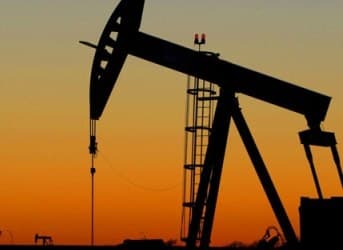The Energy Information Administration (EIA) predicts the Bakken formation will hit a milestone in December when it surpasses 1 million barrels per day of oil production. Since 2010, oil production has skyrocketed in the region, allowing North Dakota to claim second place in states with the highest oil production.

All of the good and bad spillover effects of this oil bonanza are becoming increasingly evident.
The number of millionaire residents in North Dakota doubled from 2011 to 2012, and average adjusted gross income over the same timeframe jumped 22% from $60,947 to $74,221. North Dakota has the lowest unemployment rate in the nation at under 3%, and struggles to find enough workers for to fill all the job vacancies. Many oil-drilling jobs are high paying, and with other states rife with unemployment and underemployment, the state is understandably doing everything it can to keep the good times rolling.
Related articles: Environmentalists Decry California’s Fracking Rules
There are reasons for concern though. With a population of about 700,000, the influx of cash and drilling activity are overwhelming basic services and infrastructure. The industrialization of the countryside is changing rural communities, and the surge in young men working on rigs is causing social problems. At best these are short-term problems. Once supply for all kinds of services catches up with demand, maybe things will become more balanced.
But, North Dakota is showing some of the same symptoms so often associated with “petro-states.”
First, petro-states suffer from inflation caused by a rapid increase in revenues from the boom. In North Dakota, home prices are soaring – since January 2010 home prices have climbed 34% for North Dakota as a whole, and 44% in the Bismark Metro area.

Source: Zillow
Wages for low-skilled jobs are rising rapidly as well, as companies struggle to attract workers. Wal-Mart jobs can pay $17 per hour. Of course this is great for those workers, but when renting a trailer can cost $1,650 per month, and a cup of coffee costs $5, the real benefits are a little more difficult to discern.
Another danger to petro-states is that their over reliance on oil production starts to crowd out other sectors of the economy. In North Dakota, oil and mining made up 13.7% of employment in the state in 2011, up from 4.9% in 2009. By comparison, the U.S. average stands at about 0.5%. Some students are leaving college because they can’t turn down lucrative drilling jobs – evidence that oil is distorting the economy.
Related articles: How an EU-US Free Trade Agreement will Affect the Energy Sector
Finally, petro-states often suffer from cycles of booms and busts. With high decline rates, it is unclear if the boom times in the Bakken will last. The IEA recently predicted the American shale revolution could decline beginning in 2020.
There are some positive signs that North Dakota is aware of these issues. Petro-states often ratchet up spending when oil revenues come pouring in, which can lead to huge deficits when the boom turns to bust. North Dakota has taken some steps to avoid such a calamity. The state is setting aside oil revenues in a Legacy Fund that cannot be tapped before 2017. Much like Norway’s sovereign wealth fund, North Dakota’s savings will, at least in the short-term, avoid a massive increase in spending that so often accompany an oil boom. The fund has accumulated $1.3 billion as of August 2013.
ADVERTISEMENT
Moreover, when petro-states are flush with oil cash, they become less dependent on tax revenue from ordinary citizens. This allows governments to become detached from the everyday concerns of its people. For example, in 2012 anti-tax groups pushed a voter referendum to repeal the state’s property tax, arguing such a tax is no longer needed because of oil. This would have made North Dakota the first state to do so. Fortunately, voters rejected the initiative.
The Bakken boom is still unfolding, but oil is dramatically changing the character of North Dakota.
By. Nick Cunningham


















